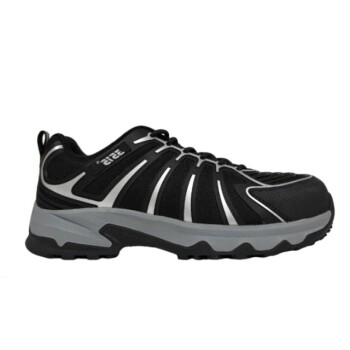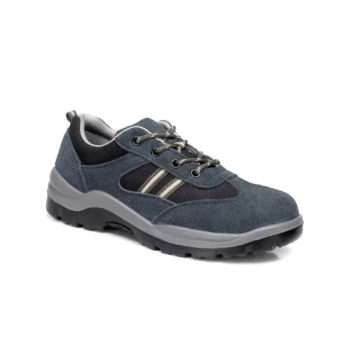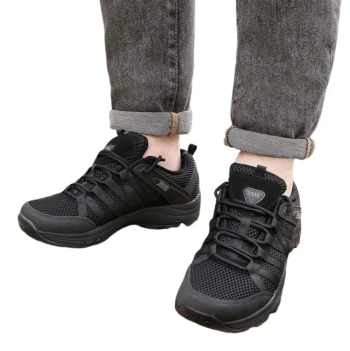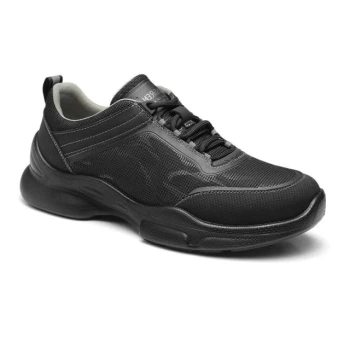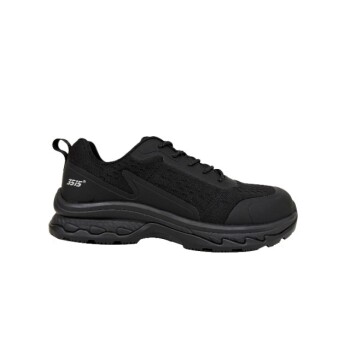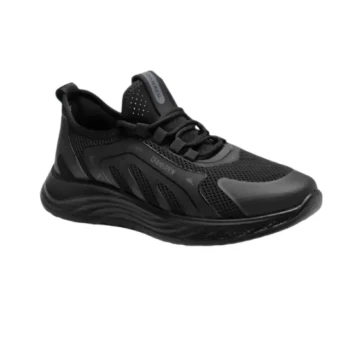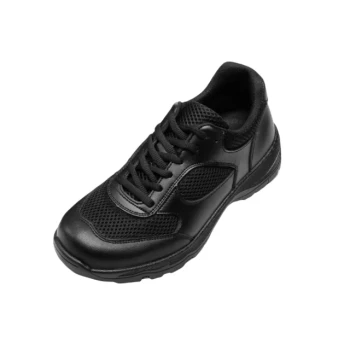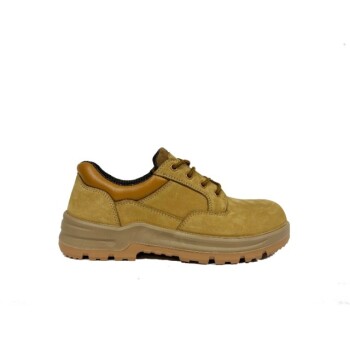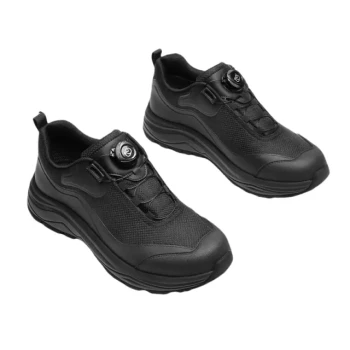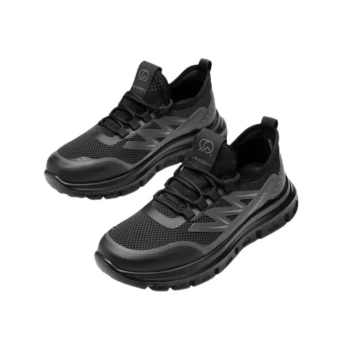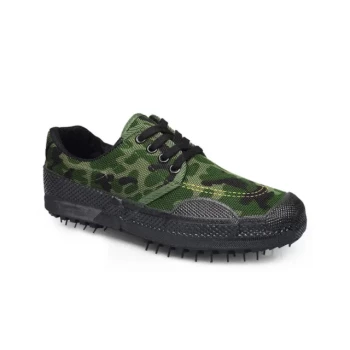The fundamental reason to wear slip-resistant shoes at work is to drastically reduce your risk of injury from slips, trips, and falls. These incidents are among the most frequent and costly causes of workplace accidents, and proper footwear provides essential traction on hazardous surfaces like wet, oily, or uneven floors, serving as your first line of defense.
Beyond simply preventing a fall, selecting the right slip-resistant footwear is a strategic decision that protects personal health, ensures regulatory compliance, and mitigates significant financial liability for both employees and employers.
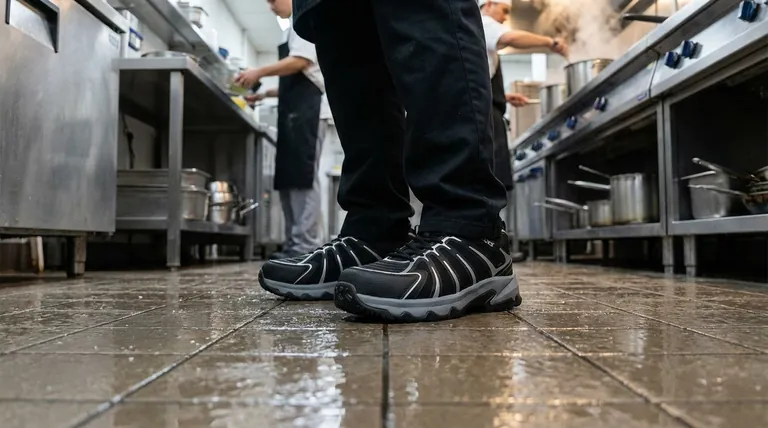
The High Cost of a Simple Fall
A slip at work is rarely a minor inconvenience. The consequences ripple outward, affecting an individual's health, a company's finances, and overall productivity.
The Human Impact
Slips, trips, and falls are a leading cause of serious, non-fatal workplace injuries. According to the CDC, they are the third most common type of such injury in the United States.
These accidents can lead to everything from sprains and fractures to severe, long-term disabilities, impacting your ability to work and your quality of life.
The Financial Drain
The economic toll of these preventable accidents is staggering. Slips and falls account for approximately $70 billion annually in medical expenses and workers' compensation claims.
For employers, these incidents represent a significant liability. According to the Occupational Safety and Health Administration (OSHA), slips, trips, and falls are responsible for about 25% of all reported injury claims.
How Slip-Resistant Shoes Provide Protection
Properly designed footwear does more than just grip the floor. It creates a stable and secure foundation that allows you to perform your job safely and effectively.
The Science of Traction
The core function of a slip-resistant shoe is to provide stability and maintain grip even when a floor's surface is compromised.
Specialized tread patterns and sole compounds are engineered to channel away liquids like water and oil, allowing the sole to make solid contact with the floor and prevent hydroplaning.
More Than Just a Grippy Sole
Modern safety footwear often incorporates multi-layer protection. Many slip-resistant shoes also include features like steel toes to guard against impact, puncture-resistant plates, and electrical hazard protection.
Furthermore, features like enhanced cushioning and arch support reduce fatigue. A comfortable worker is more alert and less prone to accidents, directly boosting safety and productivity.
Identifying High-Risk Environments
While beneficial in any workplace, slip-resistant shoes are absolutely critical in certain environments where floor conditions are predictably hazardous.
Key Industries at Risk
Workers in industries with consistently wet, greasy, or slippery surfaces face the highest risk.
This includes food service and commercial kitchens, healthcare facilities, manufacturing plants, construction sites, and industrial factories.
Workers Who Benefit Most
Any employee who spends a significant part of their day on their feet can benefit, but they are essential for roles like utility workers, linemen, medical staff, and parcel service employees.
This footwear is especially important for older workers, who are often more susceptible to serious injury from a fall.
Understanding Compliance and Liability
Wearing appropriate footwear isn't just a good idea—it's often a component of maintaining a safe and legally compliant workplace.
Meeting Regulatory Standards
OSHA mandates that employers provide a safe working environment. Ensuring that employees wear certified slip-resistant shoes is a key step in meeting this requirement and avoiding potential citations.
Reducing Costly Claims
For a business, the investment in proper footwear programs pays for itself by reducing the frequency and severity of accidents. This directly lowers the number of costly and time-consuming workers' compensation claims.
Making the Right Choice for Your Goal
Selecting the correct shoe depends entirely on the specific hazards of your role.
- If your primary focus is food service or healthcare: Prioritize shoes with maximum grip on wet and greasy surfaces and materials that are easy to clean and sanitize.
- If your primary focus is construction or industrial work: Select a boot that combines slip resistance with other critical protections like a safety toe and puncture-proof sole.
- If your primary focus is all-day comfort and stability: Look for models with enhanced cushioning and proven arch support to reduce fatigue alongside their core safety features.
Ultimately, choosing to wear slip-resistant shoes is a proactive investment in your personal safety and professional longevity.
Summary Table:
| Key Benefit | Impact |
|---|---|
| Prevents Injuries | Reduces risk of slips, trips, and falls—a leading cause of workplace injuries. |
| Saves Costs | Mitigates $70B in annual medical and compensation claims for employers. |
| Ensures Compliance | Meets OSHA standards for a safe work environment. |
| Boosts Productivity | Comfortable, stable footwear reduces fatigue and increases alertness. |
Protect your workforce and your bottom line with 3515's industrial-grade safety footwear.
As a large-scale manufacturer, 3515 produces a comprehensive range of certified slip-resistant shoes and boots for distributors, brand owners, and bulk clients. Our footwear combines advanced traction technology with durable construction, safety toes, and all-day comfort—specifically engineered for high-risk environments like food service, healthcare, manufacturing, and construction.
Contact us today to discuss your bulk order requirements and receive a customized solution that enhances safety, ensures compliance, and reduces liability.
Visual Guide
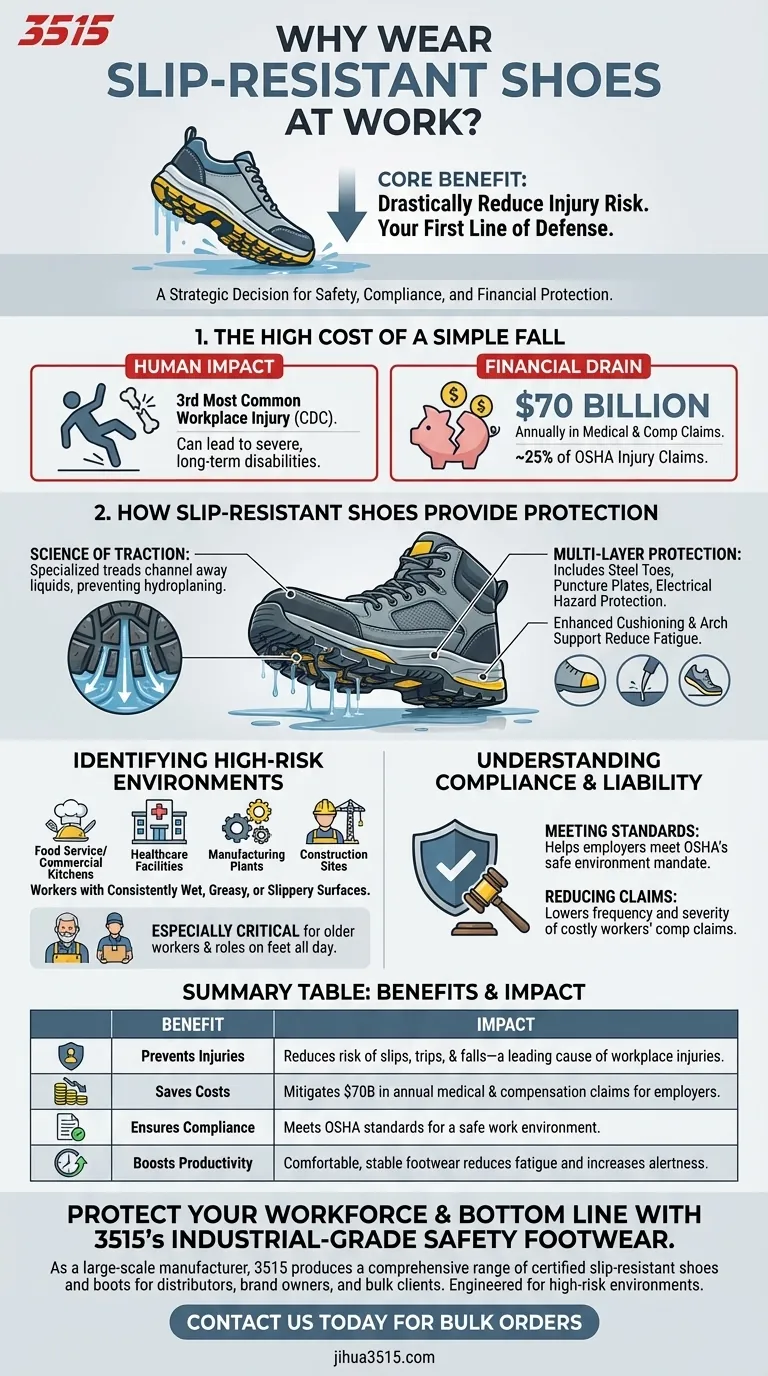
Related Products
- Premium KPU Athletic Safety Shoes for Wholesale
- Durable Rubber-Soled Utility Shoes for Wholesale & Custom Brand Manufacturing
- Custom Safety Shoe Manufacturer for Wholesale & OEM Brands
- Lightweight Breathable Training Shoes for Wholesale & Custom OEM Manufacturing
- Wholesale Breathable Training Shoes Custom Athletic Footwear Manufacturer
People Also Ask
- What is an important feature of shoe soles for slip resistance? The Dual System for Ultimate Traction
- What is the general perception of non-slip shoes in workplace safety? Uncover the Truth About Slip-Resistant Footwear
- What features should the sole of a non-slip shoe have to effectively channel water? Master the Design for Ultimate Grip
- What are the benefits of using traction spray for shoes? Instantly Boost Grip & Safety
- Why is it necessary to strictly control contact pressure and angles during SATRA slip resistance testing for footwear?
- What additional features do slip-resistant shoes often include for comfort? Beyond Grip for All-Day Wear
- How do non-slip athletic shoes differ from regular athletic shoes? Discover the Grip Technology
- How does a cantilever load cell ensure the accuracy of friction data? Mastering Real-Time Slip Resistance Precision
